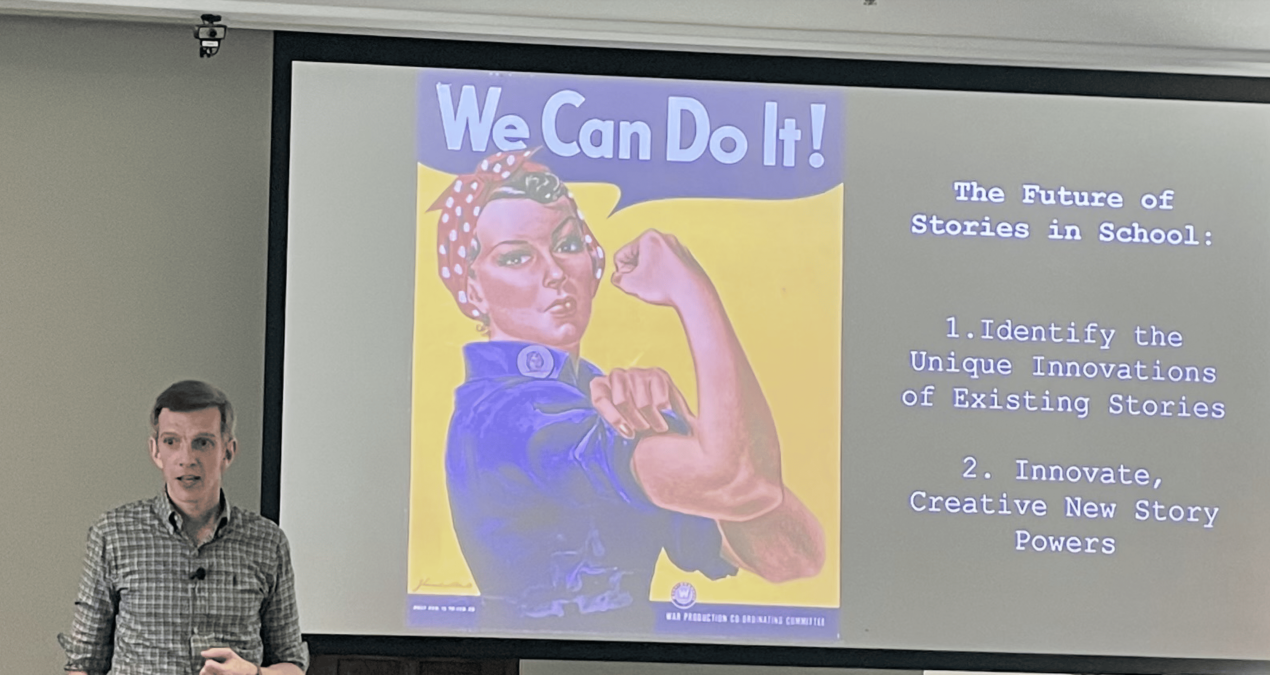Genevieve Pfister, Staff Writer—
Professor Angus Fletcher, a man who considers himself a storythinker rather than a storyteller, visited Denison Oct. 3 as part of Denison’s Beck Visiting Writers’ series. Fletcher is a professor of story science at The Ohio State University and author of Wonderworks: Literary Invention and the Science of Stories. He explained at the beginning of the talk that stories play a crucial role in people’s emotional development and imagination as well as their mental health and well-being – all of which are applicable to many different disciplines.
“Everything cool in this world that does not come from nature comes for imagination,” Fletcher said. “That’s the same part of the brain that’s being fired when we read books.”
Fletcher discussed different types of plots and plot elements that have different impacts, including the Revenge Plot and the Plot Delay. The Revenge Plot, which was utilized in many Greek tragedies, gives us a narrative to deal with grief and may have a minor cathartic effect on audiences. The Plot Delay is when the revenge is not immediate, and audiences are prompted to focus and linger on the grief element, encouraging reflection instead of propelling the reader into narrative action (a technique first notably employed in Shakespeare’s Hamlet).
Fletcher also discussed how different story structures can be used to help audiences deal with different types of PTSD. Individuals experiencing one type of PTSD that is characterized by uncontrollable emotion, may benefit from the type of narrative technique used in Oedipus, where the audience knows the fate of the character early on and can thus prepare for it. This encourages and prepares them to be ready to help others, which can in turn build self-efficacy.
For individuals dealing with the second type of PTSD that is characterized by the brain seeing emotion as dangerous and therefore becoming numb and dissociating in attempt to protect itself, a narrative structure that surprises the brain into unexpected, positive emotion can help reteach the brain that emotion is not an enemy, as used by Alison Bechdel in her graphic novel tragicomic, Fun Home.
Fletcher also identified two story elements that can promote mental well-being: wonder and love. He described the feeling of wonder as a sensation of amazement so intense it feels to the reader as if they are somehow less conscious of themselves, triggering a kind of spiritual experience in the brain which can lead to increased generosity. He described love in literature as a personal disclosure: the act of saying something publicly that could result in judgment or harm. Almost all love stories will contain that type of confession, a literary mechanism Fletcher considers to be invented by Sappho, a queer poetess in Ancient Greece.
Fletcher went on to outline a number of other neurological effects of storytelling, including strengthening imagination, creativity, and problem-solving skills in both children and adults. Stories help to combat the progressive decline in creativity that had been recorded the longer children are in school and encourage people to consider issues from different perspectives.
After the talk, Fletcher talked with students and faculty and signed copies of Wonderworks.

